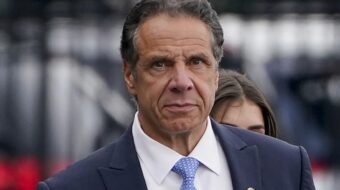The Institute of Medicine (IOM) of the National Academies of Sciences has just released a scathing critique of the state of health care coverage in the United States and a call for universal health coverage. Noting that the uninsured get only about half as much health care as those with insurance, the IOM estimates that having 43 million Americans go without health insurance results in 18,000 avoidable deaths each year. “Lack of health insurance in the United States is a critical problem that can and should be eliminated,” according to Mary Sue Coleman, president of the University of Michigan and co-chair of the IOM committee that released the report.
While the IOM committee did not recommend any one plan for providing universal coverage, it did suggest guiding principles on which plans might be judged. The most important of these is that “Health care coverage should be universal,” with a target date of 2010 for achieving this goal. In their evaluation of plans, the committee acknowledged that even though some form of single-payer plan would probably be the most expensive, it would also be the most likely to provide universal and continuous coverage.
None of this appears, on the face of it, to be particularly controversial. Even former Republican presidential candidate Bob Dole supported the report, but not the Bush administration. Secretary of Health and Human Services Tommy Thompson claimed the goal is unrealistic. In his State of the Union address, Bush offered a program so anemic it requires life support. He proposed to control costs (by computerizing health records, a potential privacy concern) and offer low-income Americans a refundable tax credit (which presumably would magically provide health care), while explicitly rejecting a government-run health care system. When the administration’s approach is to the right of Bob Dole, you know we’re in trouble!
The IOM call for universal coverage fits with the mood of the country. A poll for the American Hospital Association found that a majority of Americans would be “willing to pay higher taxes to assure that every American citizen receives health care coverage.” As reported here recently, 74 percent of respondents to an AOL poll agreed that “health care [should] be guaranteed by law for all Americans.”
This last highlights the weakness of the IOM’s otherwise good position. The IOM emphasizes “coverage” and “insurance,” but fails to really consider a national health service – the only measure that would halt the flow of public health care dollars into private provider, insurer, and pharmaceutical pockets. One senses a certain lust for increased fees in the IOM press release.
Providing health coverage is not the same as guaranteeing health care. Another of the report’s guidelines, that “Health care coverage should be affordable to individuals and families,” subtly acknowledges one of the problems with many current proposals. Health insurance, even subsidized health insurance, is not necessarily free health care. Many of the proposals, despite their attractive names, include substantial premiums and co-pays to be paid by working families.
Finally, in attributing mortality differences between insured and uninsured solely to differences in medical care, other problems are ignored. Even free health insurance would not provide decent working conditions, housing, education, and the like, all of which influence health and longevity. As much as we need increased health care services, especially for those in the working class and the poor, health care alone will not solve the problems.
Thus, we must go further than the IOM recommendations. We must insist on a national health service. In a national health service system, health care is provided directly by government-employed health care workers in publicly-owned facilities. This is the only way to guarantee equal, quality health care to every resident of the U.S. To solve the other problems that harm the health of the poor and increase avoidable deaths, we must continue to fight for socialism.
In the short term we have to push every candidate, at every opportunity, on health care. The elections are an opportunity for meaningful change, an opportunity we cannot afford to miss.
The author can be reached at pww@pww.org.










